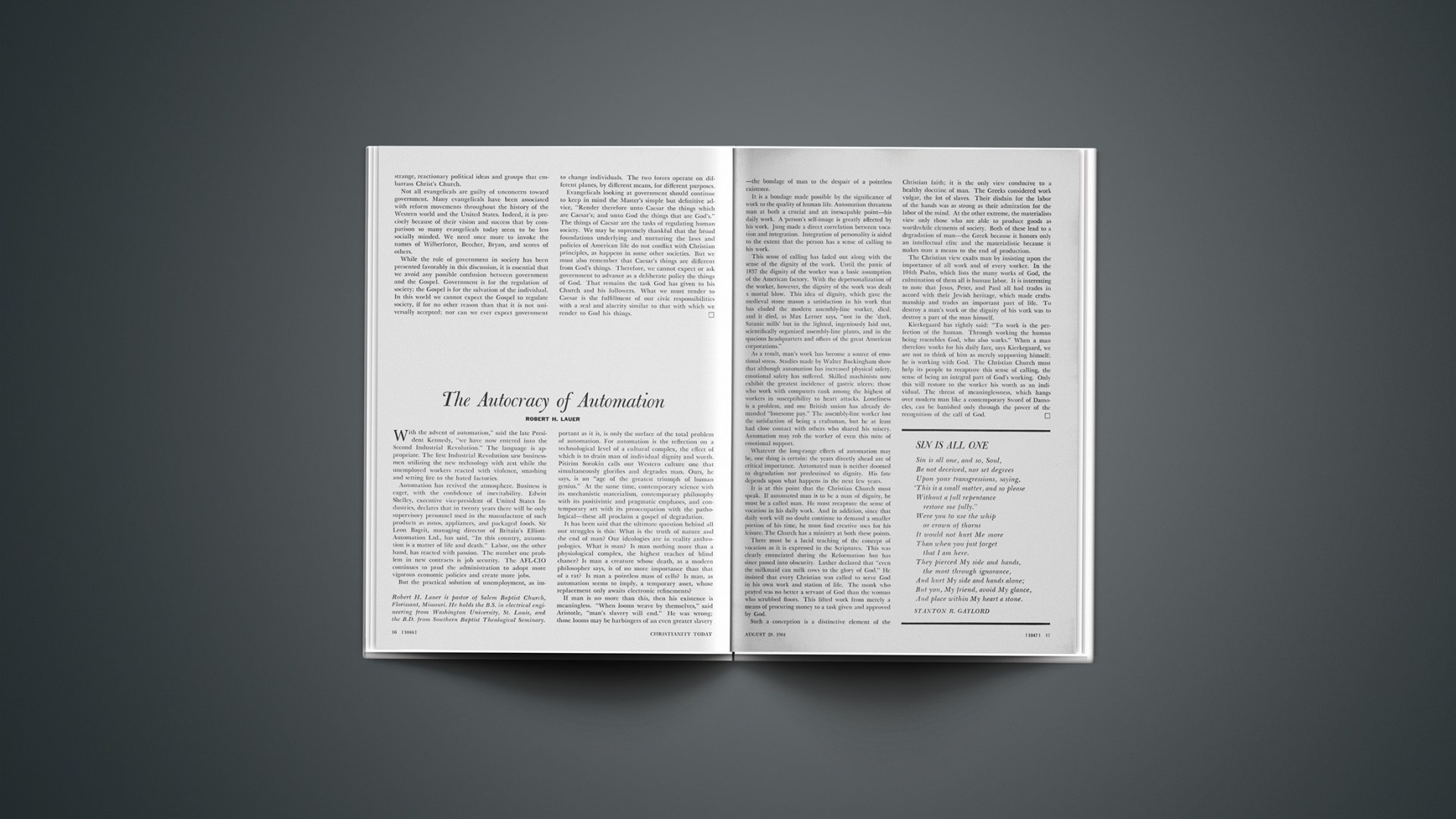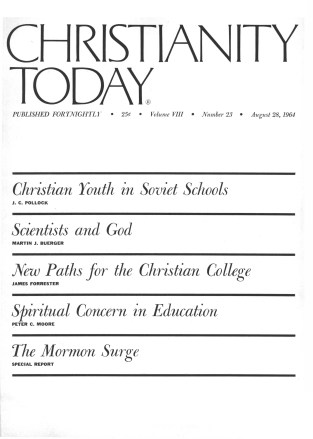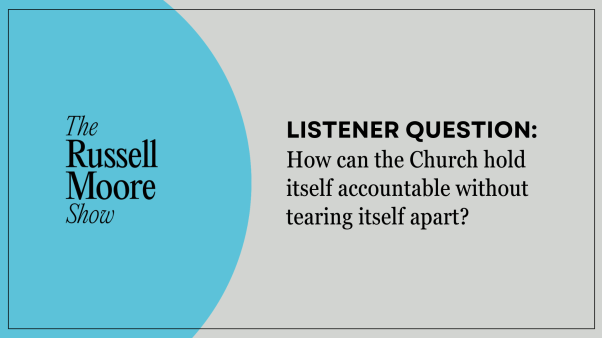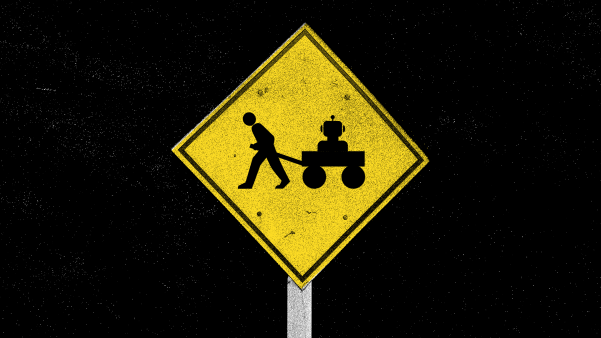With the advent of automation,” said the late President Kennedy, “we have now entered into the Second Industrial Revolution.” The language is appropriate. The first Industrial Revolution saw businessmen utilizing the new technology with zest while the unemployed workers reacted with violence, smashing and setting fire to the hated factories.
Automation has revived the atmosphere. Business is eager, with the confidence of inevitability. Edwin Shelley, executive vice-president of United States Industries, declares that in twenty years there will be only supervisory personnel used in the manufacture of such products as autos, appliances, and packaged foods. Sir Leon Bagrit, managing director of Britain’s Elliott-Automation Ltd., has said, “In this country, automation is a matter of life and death.” Labor, on the other hand, has reacted with passion. The number one problem in new contracts is job security. The AFL-CIO continues to prod the administration to adopt more vigorous economic policies and create more jobs.
But the practical solution of unemployment, as important as it is, is only the surface of the total problem of automation. For automation is the reflection on a technological level of a cultural complex, the effect of which is to drain man of individual dignity and worth. Pitirim Sorokin calls our Western culture one that simultaneously glorifies and degrades man. Ours, he says, is an “age of the greatest triumph of human genius.” At the same time, contemporary science with its mechanistic materialism, contemporary philosophy with its positivistic and pragmatic emphases, and contemporary art with its preoccupation with the pathological—these all proclaim a gospel of degradation.
It has been said that the ultimate question behind all our struggles is this: What is the truth of nature and the end of man? Our ideologies are in reality anthropologies. What is man? Is man nothing more than a physiological complex, the highest reaches of blind chance? Is man a creature whose death, as a modern philosopher says, is of no more importance than that of a rat? Is man a pointless mass of cells? Is man, as automation seems to imply, a temporary asset, whose replacement only awaits electronic refinements?
If man is no more than this, then his existence is meaningless. “When looms weave by themselves,” said Aristotle, “man’s slavery will end.” He was wrong; those looms may be harbingers of an even greater slavery—the bondage of man to the despair of a pointless existence.
It is a bondage made possible by the significance of work to the quality of human life. Automation threatens man at both a crucial and ah inescapable point—his daily work. A person’s self-image is greatly affected by his work. Jung made a direct correlation between vocation and integration. Integration of personality is aided to the extent that the person has a sense of calling to his work.
This sense of calling has faded out along with the sense of the dignity of the work. Until the panic of 1837 the dignity of the worker was a basic assumption of the American factory. With the depersonalization of the worker, however, the dignity of the work was dealt a mortal blow. This idea of dignity, which gave the medieval stone mason a satisfaction in his work that has eluded the modern assembly-line worker, died; and it died, as Max Lerner says, “not in the ‘dark, Satanic mills’ but in the lighted, ingeniously laid out, scientifically organized assembly-line plants, and in the spacious headquarters and offices of the great American corporations.”
As a result, man’s work has become a source of emotional stress. Studies made by Walter Buckingham show that although automation has increased physical safety, emotional safety has suffered. Skilled machinists now exhibit the greatest incidence of gastric ulcers; those who work with computers rank among the highest of workers in susceptibility to heart attacks. Loneliness is a problem, and one British union has already demanded “lonesome pay.” The assembly-line worker lost the satisfaction of being a craftsman, but he at least had close contact with others who shared his misery. Automation may rob the worker of even this mite of emotional support.
Whatever the long-range effects of automation may be, one thing is certain: the years directly ahead are of critical importance. Automated man is neither doomed to degradation nor predestined to dignity. His fate depends upon what happens in the next few years.
It is at this point that the Christian Church must speak. If automated man is to be a man of dignity, he must be a called man. He must recapture the sense of vocation in his daily work. And in addition, since that daily work will no doubt continue to demand a smaller portion of his time, he must find creative uses for his leisure. The Church has a ministry at both these points.
There must be a lucid teaching of the concept of vocation as it is expressed in the Scriptures. This was clearly enunciated during the Reformation but has since passed into obscurity. Luther declared that “even the milkmaid can milk cows to the glory of God.” He insisted that every Christian was called to serve God in his own work and station of life. The monk who prayed was no better a servant of God than the woman who scrubbed floors. This lifted work from merely a means of procuring money to a task given and approved by God.
Such a conception is a distinctive element of the Christian faith; it is the only view conducive to a healthy doctrine of man. The Greeks considered work vulgar, the lot of slaves. Their disdain for the labor of the hands was as strong as their admiration for the labor of the mind. At the other extreme, the materialists view only those who are able to produce goods as worthwhile elements of society. Both of these lead to a degradation of man—the Greek because it honors only an intellectual elite and the materialistic because it makes man a means to the end of production.
The Christian view exalts man by insisting upon the importance of all work and of every worker. In the 104th Psalm, which lists the many works of God, the culmination of them all is human labor. It is interesting to note that Jesus, Peter, and Paul all had trades in accord with their Jewish heritage, which made craftsmanship and trades an important part of life. To destroy a man’s work or the dignity of his work was to destroy a part of the man himself.
Kierkegaard has rightly said; “To work is the perfection of the human. Through working the human being resembles God, who also works.” When a man therefore works for his daily fare, says Kierkegaard, we are not to think of him as merely supporting himself; he is working with God. The Christian Church must help its people to recapture this sense of calling, the sense of being an integral part of God’s working. Only this will restore to the worker his worth as an individual. The threat of meaninglessness, which hangs over modern man like a contemporary Sword of Damocles, can be banished only through the power of the recognition of the call of God.
Sin Is All One
Sin is all one, and so, Soul,
Be not deceived, nor set degrees
Upon your transgressions, saying,
‘This is a small matter, and so please
Without a full repentance
restore me fully.”
Were you to use the whip
or crown of thorns
It would not hurt Me more
Than when you just forget
that I am here.
They pierced My side and hands,
the most through ignorance,
And hurt My side and hands alone;
But you, My friend, avoid My glance,
And place within My heart a stone.
STANTON R. GAYLORD
Robert H. Lauer is pastor of Salem Baptist Church, Florissant, Missouri. He holds the B.S. in electrical engineering from Washington University, St. Louis, and the B.D. from Southern Baptist Theological Seminary.










